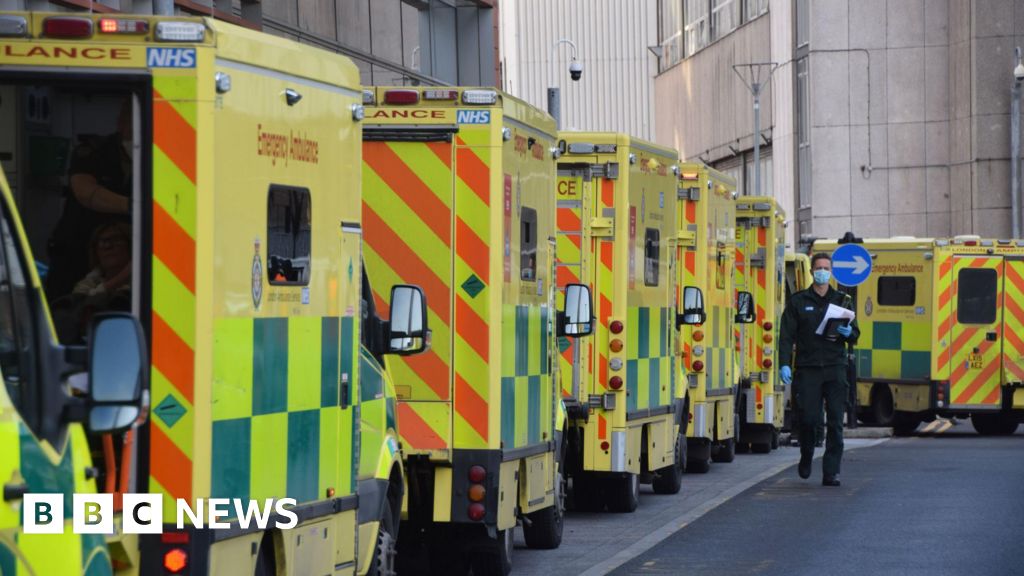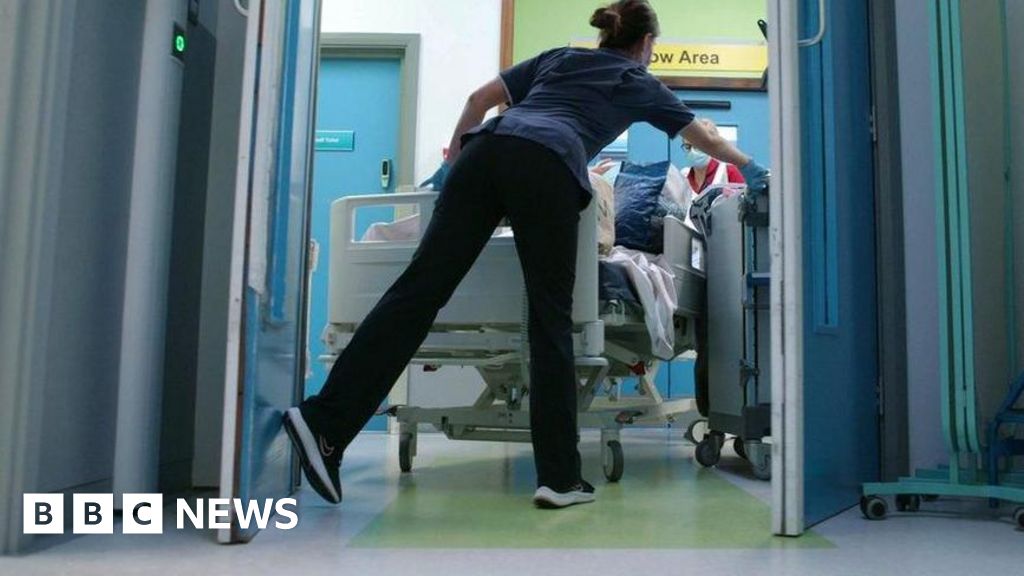ARTICLE AD BOX
Protection or an infringement of freedoms? People in Wales have been wearing masks for almost two years
Wales' last few remaining Covid restrictions could be scrapped on the 28 March, it has been announced.
It is the first time ministers have given a date for when laws requiring people to self-isolate and wear masks may end.
It has also been confirmed that Wales will gradually end free mass testing, beginning at the end of the month.
The country will be the last part of the UK to totally lift its coronavirus restrictions.
The Welsh government will publish a plan setting out how people can "live safely with coronavirus" on Friday.
It will outline how it will move away from "universal and routine" testing, to a "more targeted" scheme for vulnerable people.
This will begin at the end of March, but no further details have been given.
Wales' testing regime had been in doubt since the UK government, which pays for much of the infrastructure, announced that free mass testing would cease in England on 1 April.
On Thursday night, the Welsh government said all remaining legal measures on Covid could be removed from 28 March if the public health situation remained stable, but a final decision will be taken in three weeks.
In the meantime the regulations, including the requirement for businesses to have Covid risk assessments, will stay in place.
First Minister Mark Drakeford warned the pandemic "isn't over" and there could be "fluctuations in global patterns of infection for several years".
Mr Drakeford will set out details of his latest coronavirus review in a press conference on Friday.
Image source, Getty Images
Image caption,While face mask rules have been scrapped in England, they are still legally required to be worn in many places in Wales
The Welsh government has promised vaccination boosters in the spring for the elderly and most vulnerable adults, and a regular Covid vaccination programme from the autumn.
It said it would have contingency plans if there was a new variant which evaded the vaccine, but believes it is more likely that further waves of infection can be managed by the NHS, because of vaccines and drug treatments.
The Welsh Conservatives' health spokesman, Russell George, said: "It is about time the Labour government finally recognised the need to live with Covid and heeded our calls to publish a plan and set dates for the end of coronavirus laws, matching our deadline of the end of March.
"It is a shame Wales was the last UK nation to get a plan, that the full return of our freedoms will only be restored weeks after they were in England and Northern Ireland, and that Mark Drakeford did not deliver his plan directly to the national legislature as Boris Johnson and Nicola Sturgeon did."
Plaid Cymru's spokesman for health, Rhun ap Iorwerth, said: "Government is now setting out where testing and self-isolating will still be needed and supported over coming months, which is welcome, but we now need to know exactly who will be identified as being in the vulnerable groups, and of course we have to know that testing will remain free".
Mr ap Iorwerth said health and care services needed resilience built into their future, and Covid would be with us for some time.
"While Covid has certainly exacerbated problems, deep-rooted issues existed long before the pandemic. Consequently, the gradual move from pandemic to endemic must be accompanied by a plan which includes long-term solutions to overcome long standing problems."
Coronavirus regulations of one form or another have been in place since the first 2020 lockdown two years ago, although the measures that are still in force came into being later.
Mask wearing laws to end
Wales was the last country in the UK to make masks mandatory in shops - in September 2020. The legal requirement to self-isolate became law two months later.
In recent weeks, mask wearing rules have eased but people must continue to wear them by law in shops, salons and hairdressers, on public transport and in health and social care settings.
That legal requirement is set to end by the end of March, bringing the country in line with guidance issued in the other three nations.
Salon owner Sarah Bruton says ending the mask wearing law will only better communication between staff and customers
Sarah Bruton, who owns Captiva Spa and Lounge in Caerphilly, said she was "delighted" rules were coming to an end.
While she will not be rushing to drop all restrictions at once, "at least we get to make personal choices now rather than have it mandated", she said.
Ms Bruton told BBC Radio Wales it would be "very difficult" to make customers take an lateral flow test before arriving at the spa, but it would be encouraging them and staff to stay at home if they feel unwell.
It is about "making sensible decisions", she added.
Covid behavioural expert Dr Simon Williams from Swansea University said he believed there may be return to "much lower levels" of face mask wearing.
He said a decline had been seen in England, where it is no longer law: "Because people are less worried, you will see people choosing not to wear masks."
The self-isolation duration has also changed over time - it is now a minimum of five days and a maximum of 10.
This is a significant milestone in the story of the pandemic.
Laws on wearing masks in shops and self isolating weren't introduced until autumn 2020, months after the first deadly wave of infections.
Wales will cling on to those rules longer than any other part of the UK.
Scrapping them will mark the beginning of a new phase when we are expected to live Covid as we do with other infectious disease.
For many, it will be a difficult adjustment. Getting to this point has involved huge upheaval and trauma.
Covid has upended our lives and appeared on 9,696 death certificates in Wales.
Latest figures show that the number of positive tests reported through lateral flow tests and PCRs are falling.
The number of positive PCR tests dropped by nearly 25% in a week and stands at 158.7 cases per 100,000 people.
Some 8,000 positive lateral flow tests were recorded. A rough estimate shows that if the weekly PCR tests were added, the case rate would rise above 400 - 20% down on week ago.
Numbers of Covid patients in hospital also remain stable and relatively low at a daily average of 432, but about 80% of them are "incidental" Covid cases and are people who are in hospital for something else.

 2 years ago
27
2 years ago
27








 English (US) ·
English (US) ·